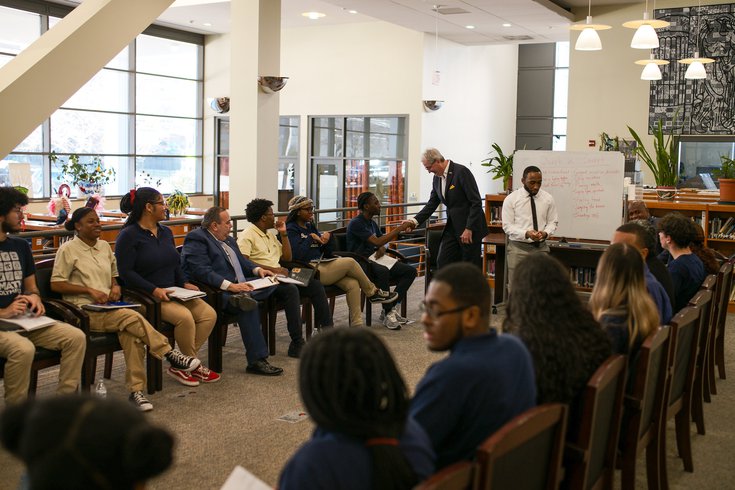
February 15, 2023
 Edwin J. Torres/N.J. Governor's Office/Flickr
Edwin J. Torres/N.J. Governor's Office/Flickr
New Jersey is expanding its Advanced Placement African American Studies courses from one school to 26 across the state in the next academic year.
New Jersey will expand its Advanced Placement African American Studies courses from one school to 26 across the state in the upcoming academic year as a way to "set an example for the nation," following Florida Gov. Ron DeSantis' decision to ban the course from his state's public schools.
The course is currently taught in 60 schools nationwide as part of a two-year pilot through the College Board. It's set to expand to hundreds of high schools across the country next year.
"The expansion of AP African American Studies in New Jersey will grant our students the opportunity to learn about the innumerable ways in which Black Americans have shaped and strengthened our community," said Gov. Phil Murphy. "As governors like Florida's Ron DeSantis prioritize political culture wars ahead of academic success, New Jersey will proudly teach our kids that Black history is American history."
The Governor's Office did not respond to PhillyVoice's request for comment on which New Jersey schools will offer the AP course next year, but Murphy said during a news briefing on Tuesday that six Newark schools will offer the class to eligible high school students.
In January, the DeSantis administration banned the AP African American Studies course, claiming that the course indoctrinates students students into believing a "political agenda" and linking it to critical race theory, an education concept not included in the AP course that acknowledges racial disparities in U.S. history and offers a way to understand how racism is reinforced in law and culture.
In response to the backlash, the College Board made a few changes to the course. These included making the Black Lives Matter movement and slavery reparations optional teaching topics, and removing a list of authors, including Black intellectuals like Ta-Nehisi Coates and bell hooks, from the curriculum. This placed the organization under increased scrutiny from education leaders, The New York Times reported.
The nonprofit released a lengthy statement on Saturday criticizing the DeSantis administration for its comments about the course, saying that many of the topics it labeled as optional were never requirements under the framework, and that teachers are able to use the framework of the course to build their own curriculum.
The College Board began developing the course at the beginning of 2022. It is expected to expand nationally by 2024, and its accompanying exam will be available to all eligible students by 2025.
"Unlike Florida's governor and other anti-Black history governors across the country, Governor Murphy is prioritizing the truth," said Rev. Charles F. Boyer, founding director of Salvation and Social Justice. "Black history is American history and when we don't tell the whole story not only do we further marginalize and oppress a whole portion of Americans, but we also lie to ourselves and are doomed to make the same deadly mistakes."
More than 200 colleges and universities have already offered to provide college-level credit to students who earn a passing score on the AP exam, allowing students who enter four-year programs to skip an introductory course in the subject.
As part of its development, the College Board discussed the framework for the course extensively with university faculty in order to ensure that the course is as rigorous as it would be at the college level.
Its revised framework, a sweeping 234-page document, breaks the course into four units: the origins of the African diaspora; freedom, enslavement and resistance; the practice of freedom; and movements and debates.
Each unit includes 5-8 weeks of instruction and utilizes primary and secondary source material to teach students about early African societies, the transatlantic slave trade, the Haitian revolution, the abolitionist movement, Juneteenth, the Civil War, Reconstruction, Jim Crow, the Harlem Renaissance, the civil rights movement, housing discrimination, Black Power, the Black Panthers, Black culture and music.
New Jersey has taught African American history as part of its statewide social studies curriculum since the 1990s, enshrining it in state law through its Amistad legislation in 2002.
The legislation included the establishment of the Amistad Commission, a 23-member body that works to expand the public education curriculum on slavery, civil rights and the achievements of Black Americans.